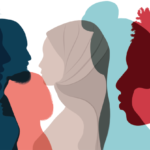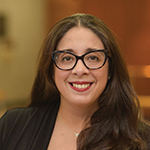Change can be made in “bite-sized pieces,” said Dr. Mosby Tyler. “Do what you can. Not everything has to be big, because this is a multiplier effect. Because for everything you do, there’s a million other people across the globe doing something, too.”
Active Allyship
Allyship—the act of engagement and support that is behind diversity, equity and inclusion work—should not be thought of as just a catch phrase, Dr. Mosby Tyler said.
“We often don’t use it as a verb; ‘to ally’ is an action,” she said. Dr. Mosby Tyler says she has seen a lot of passivity—a lot of “I stand for this, and I care for that.”
“What we’re after here is something called active allyship,” she said. “It’s where you witness something that might be an injustice or you might see a disparity, and you don’t just talk about it, you research it; you do something about it.”
She said much in the public discourse lately has been intended to discredit DEI.
“I don’t have to tell you, there’s a lot of rhetoric right now about ‘DEI—go away; go to sleep,’” she said. “And I want you to know, it is not going away. There are communities that are actively in this work because it betters their communities, and there are some unlikely communities that are in this work.”
The idea that mostly white, rural communities have no interest in DEI is inaccurate, says Dr. Mosby Tyler, something she knows from her own work.
“I do a lot of work in those particular communities. I knew that wasn’t the truth and that it was rhetoric and that people didn’t understand these communities that they were stereotyping,” she said.
The loss of the capacity for people to communicate, “to appeal to one another, to share stories with one another,” has to do with mental models, she said.
One person might be in a mental model of passive unawareness. For example, according to Dr. Mosby Tyler, someone not long ago told her they “just didn’t realize racism was as bad as it was”—and they were being honest.
Others may be in a model of passive awareness—knowing DEI issues are important but thinking they themselves have no role in them. Others are aware and also act. Some are aware and overly active, “without giving grace to someone not as far along as [they] are,” which can be counterproductive, giving rise to such phenomena as cancel culture.



